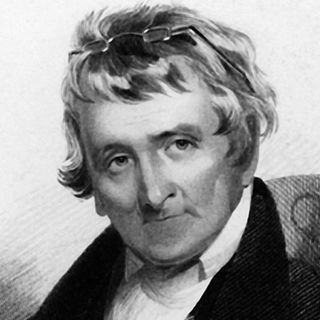A Quote by Mahatma Gandhi
I reject any religious doctrine that does not appeal to reason and is in conflict with morality.
Related Quotes
If you can impress any man with an absorbing conviction of the supreme importance of some moral or religious doctrine; if you can make him believe that those who reject that doctrine are doomed to eternal perdition; if you then give that man power, and by means of his ignorance blind him to the ulterior consequences of his own act,-he will infallibly persecute those who deny his doctrine.
Some people think that in order to lead a morally decent life one may sometimes have to forego the possibility of having a good life oneself. Even if that is true, it does not render morality incredible, but it does raise a question about morality's authority: about what one has most reason to do when one is faced with a conflict of this kind.
A comprehensive doctrine, either religious or secular, aspires to cover all of life. I mean, if it's a religious doctrine, it talks about our relation to God and the universe; it has an ordering of all the virtues, not only political virtues but moral virtues as well, including the virtues of private life, and the rest. Now we may feel philosophically that it doesn't really cover everything, but it aims to cover everything, and a secular doctrine does also.
[The Republican Party] consists of those who, believing in the doctrine that mankind are capable of governing themselves and hating hereditary power as an insult to the reason and an outrage to the rights of men, are naturally offended at every public measure that does not appeal to the understanding and to the general interest of the community.
Let it simply be asked where is the security for property, for reputation, for life, if the sense of religious obligation deserts the oaths, which are the instruments of investigation in the Courts of Justice? And let us with caution indulge the opposition, that morality can be maintained without religion. Whatever may be conceded to the influence of refined education on minds of peculiar structure, reason and experience both forbid us to expect that National morality can prevail in exclusion of religious principle.
In reviewing the most mysterious doctrines of revelation, the ultimate appeal is to reason, not to determine whether she could have discovered these truths; not to declare whether, considered in themselves, they appear probable; but to decide whether it is not more reasonable to believe what God speaks than to confide in our own crude and feeble conceptions. No doctrine can be a proper object of our faith, which is not more reasonable to believe than to reject.
Does God have a reason for wanting us to be charitable, to take care of those who can't take care of themselves? Either God does or God doesn't, it's just logic. If God has a reason then there is a reason independent of God and whatever God's reason is we should figure it out for ourselves. There is a reason and God doesn't really ground morality at all. God wants us to give charity because it's the right thing to do.
Should a priest reject relativity because it contains no authoritative exposition on the doctrine of the Trinity? Once you realize that the Bible does not purport to be a textbook of science, the old controversy between religion and science vanishes . . . The doctrine of the Trinity is much more abstruse than anything in relativity or quantum mechanics; but, being necessary for salvation, the doctrine is stated in the Bible. If the theory of relativity had also been necessary for salvation, it would have been revealed to Saint Paul or to Moses.
We're always projecting our moral categories on things. I think that's inevitable. But capitalism places no particular value on morality. Morality in the market is enforced by contract and regulation and law, because morality is understood to be in conflict with the motive force of greed and accumulation.
Being holy . . . does not mean being perfect but being whole; it does not mean being exceptionally religious or being religious at all; it means being liberated from religiosity and religious pietism of any sort; it does not mean being morally better, it meas being exemplary; it does not mean being godly, but rather being truly human.









































